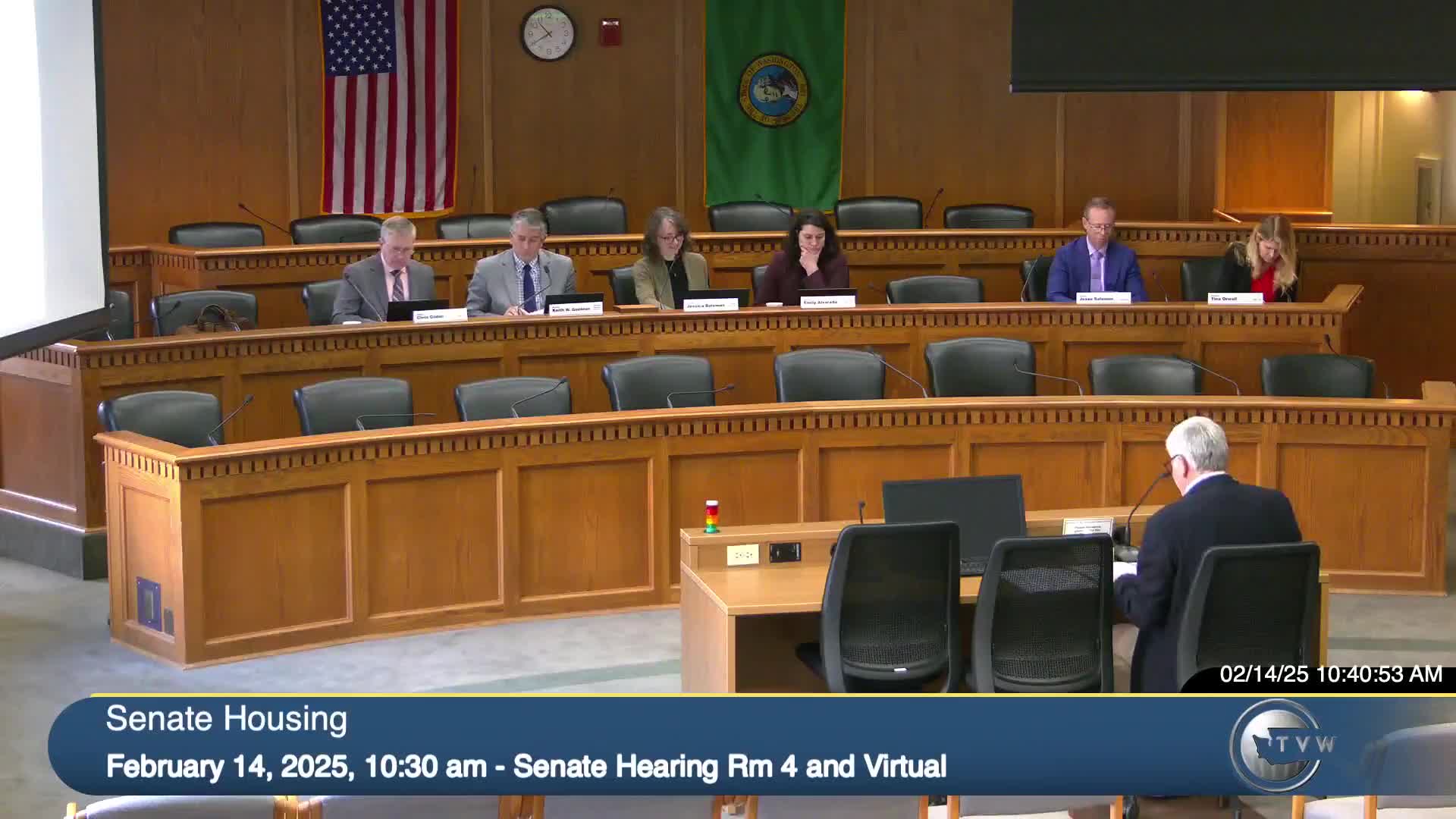Committee hears bill to let more Washington counties use multifamily tax exemption to spur housing in UGAs
Get AI-powered insights, summaries, and transcripts
Subscribe
Summary
The Senate Housing Committee heard testimony on Senate Bill 5,679, which would let any county that plans under the Growth Management Act offer the multifamily property tax exemption for qualified projects in unincorporated urban growth areas.
The Senate Housing Committee heard testimony on Senate Bill 5,679, which would let any county that plans under the Growth Management Act (GMA) offer the multifamily property tax exemption (MFTE) for qualified projects in unincorporated urban growth areas.
Melissa Van Gorkum, committee staff, summarized the bill and the current MFTE program. Under current statute, MFTE is available to qualifying cities and to certain counties that meet particular conditions (rural county with sewer or county with a higher‑education campus and student population thresholds). The bill removes those narrow county‑only requirements but keeps the condition that the exemption applies only to projects inside an unincorporated area of a county’s urban growth area (UGA). Van Gorkum told the committee Commerce’s fiscal note estimates a $36,000 biennial impact to the agency and an indeterminate fiscal impact to local governments based on county take‑up.
Senator Perry Dozier, the prime sponsor and a former county commissioner, said the change would give counties tools to support mixed‑use and multifamily housing near jobs and services. “By being able to expand this throughout these unincorporated parts of our smaller counties, I think is going to open up the door for quite a bit more growth,” Dozier said, pointing to past projects in Walla Walla as examples.
County and development interests testified in strong support. Tom McBride of Kitsap County said the current transit‑service requirement in existing law is so strict that Kitsap cannot qualify today and that removing that requirement would allow places such as Silverdale to use MFTE to spur workforce housing near hospitals and bases. Anthony Hempstead, a multifamily developer, said MFTE often determines whether a project “pencils out” and that expanding the program to eligible counties would lead to new starts in areas that currently can’t access the tool.
Supporters emphasized limits in the bill: MFTE would remain confined to UGAs and to areas with sufficient services. Kitsap and Jefferson county officials said MFTE would complement wastewater and sewer investments already underway that would enable denser development.
Opponents and questioning legislators raised concerns about sprawl, transit connectivity and revenue effects. Senator Palumbo Alvarado asked staff whether tax exemptions shift tax burdens; staff noted the Department of Revenue’s fiscal note indicates a likely tax shift to other taxpayers depending on participation. Environmental and planning advocates such as Bryce Yaden of Futurewise opposed broadening MFTE without guardrails, saying the exemption’s original purpose was to encourage dense development in places with transit and services and that expanding it could trade transportation costs for lower housing costs. The Washington State Association of Counties and several county commissioners said they support retaining requirements tied to adequate water and sewer and are open to refining transit language to avoid unintended consequences.
No committee action was taken; proponents and opponents indicated possible paths to compromise on transit and service requirements.
